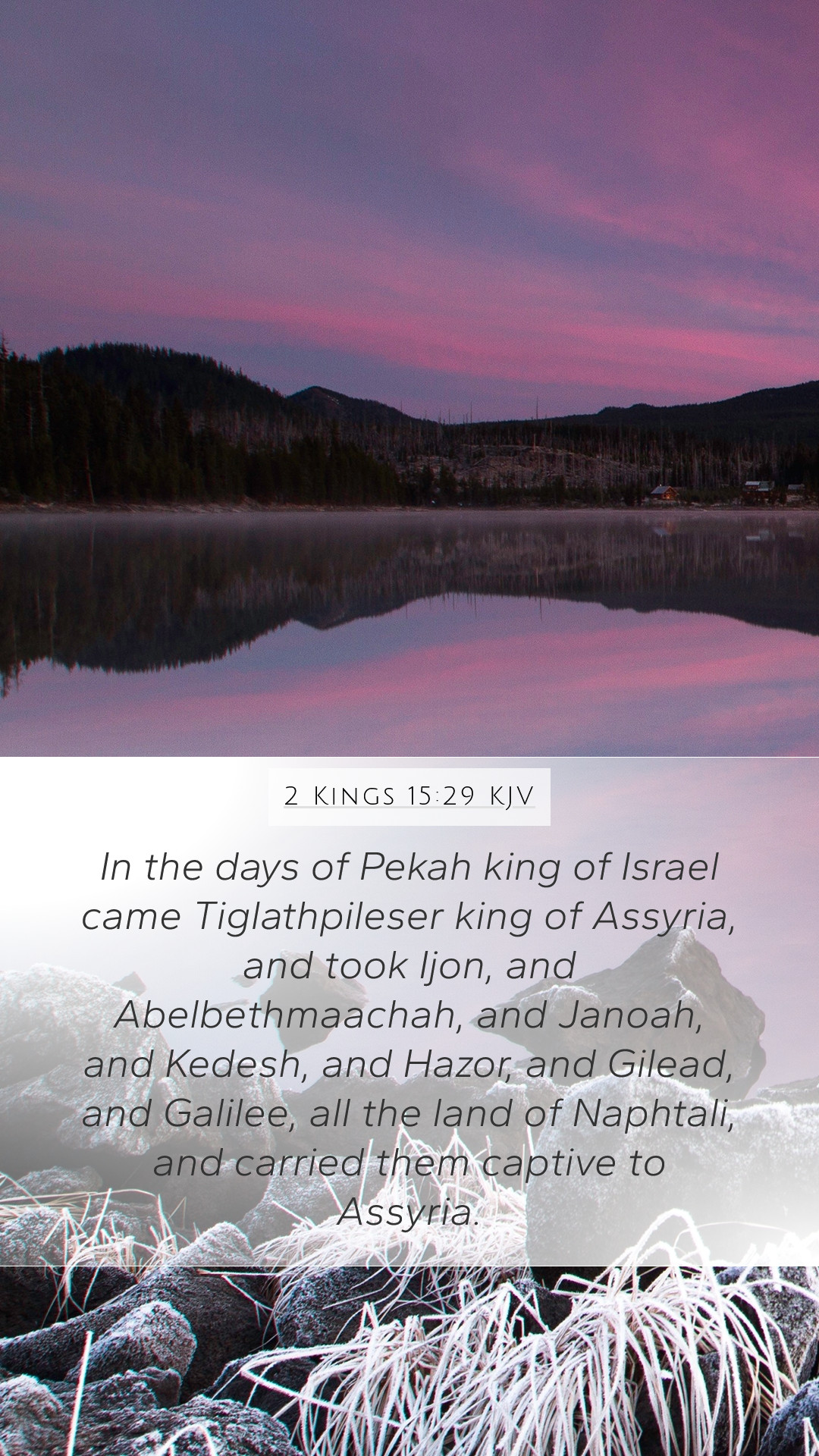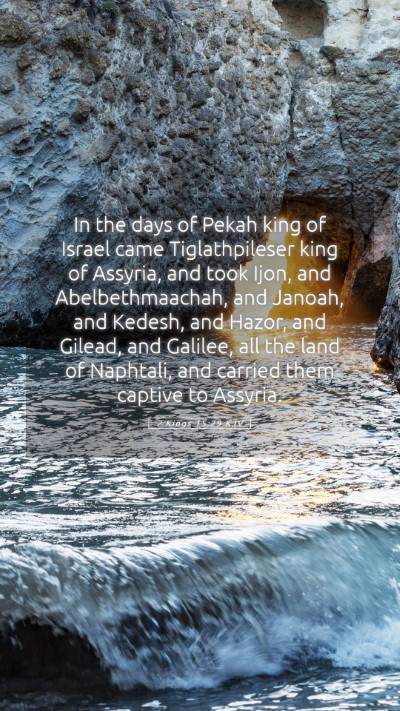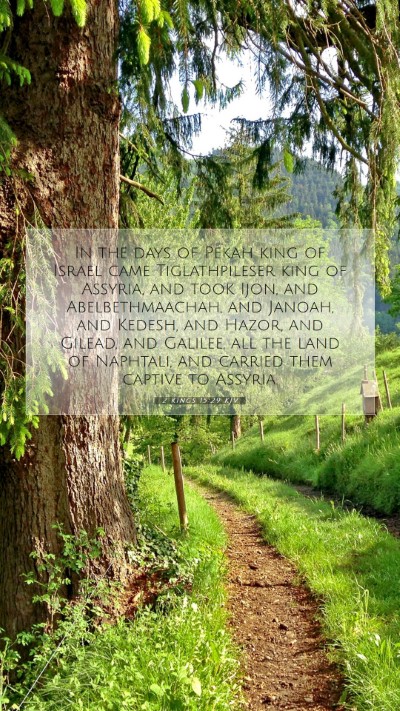Understanding 2 Kings 15:29
Bible Verse: 2 Kings 15:29 - "In the days of Pekah king of Israel came Tiglath-pileser king of Assyria and took Ijon, and Abel-beth-maachah, and Janoah, and Kedesh, and Hazor, and Gilead, and all the land of Naphtali, and carried them captive to Assyria."
Bible Verse Meaning
This verse is significant in illustrating the tumultuous period of Israelite history during the reign of Pekah, king of Israel, when external threats were ever-present. The invasion by Tiglath-pileser of Assyria is a pivotal moment that demonstrates God's judgment on Israel for their sin and disobedience. The names of cities mentioned reflect the thoroughness of the Assyrian conquest and Israel's vulnerability due to their turning away from God.
Verse Interpretation
According to public domain commentaries:
- Matthew Henry:
Henry notes the severity of Assyria's conquests, symbolizing not only military power but also God's displeasure towards a disobedient Israel. The captured lands were significant as they represented major strongholds and places of idolatry, leading to the eventual captivity of the Israelites.
- Albert Barnes:
Barnes emphasizes the implications of Tiglath-pileser's actions beyond mere territorial conquest. He interprets this as a fulfillment of prophecy, indicating that God's sovereignty can work through foreign powers to execute divine judgment on His people, thus shedding light on God's overarching plan in history.
- Adam Clarke:
Clarke suggests that this verse encapsulates the dire state of Israel's political and spiritual decay. He expounds on the cities captured, indicating that they were hotbeds of idolatry. The loss of these territories points to the consequences of forsaking God and highlights the need for repentance among God’s people.
Bible Verse Explainer: Historical Context
The historical setting of this verse is paramount for understanding its meaning. Pekah’s reign was marked by instability and sin within Israel. This time period was not only about geopolitical shifts but also reflected a spiritual crisis. The Assyrians, known for their brutal warfare, symbolize the harsh realities the Israelites faced as a direct consequence of their unfaithfulness.
Bible Verse Commentary Insights
When analyzing 2 Kings 15:29, a deeper biblical exegesis reveals several layers of meaning:
- Theological implications of God’s judgment and mercy
- The consistency of prophetic fulfillments in Scripture
- Historical patterns of sin leading to divine consequences
Application of the Verse
Understanding 2 Kings 15:29 serves as a warning and lesson for today’s believer. Each captured city represents areas of our lives that, if left unchecked, may lead to spiritual captivity. The imperative to remain steadfast in faith and acknowledge God’s working in our lives remains relevant.
Cross References
This verse is related to the following scriptures:
- Isaiah 7:1-2: The prophetic context surrounding the Assyrian threats.
- 2 Kings 16:5-6: Further invasions and the resulting geopolitical implications for Israel.
- 2 Kings 17:6: The conclusion of Israel’s fate and the overarching theme of exile.
Conclusion
Through an in-depth analysis of 2 Kings 15:29, we uncover not only the historical significance but also vital lessons for faith application today. The insights from public domain commentaries provide a robust framework for understanding scripture, enriching our Bible study insights and guiding our spiritual growth.
Further Study
For those interested in exploring this passage further, consider participating in Bible study groups or utilizing online Bible study tools. Engaging with Bible study resources and lessons can enhance your understanding of Scripture and prepare you for deeper discussions on biblical applications in modern life.


